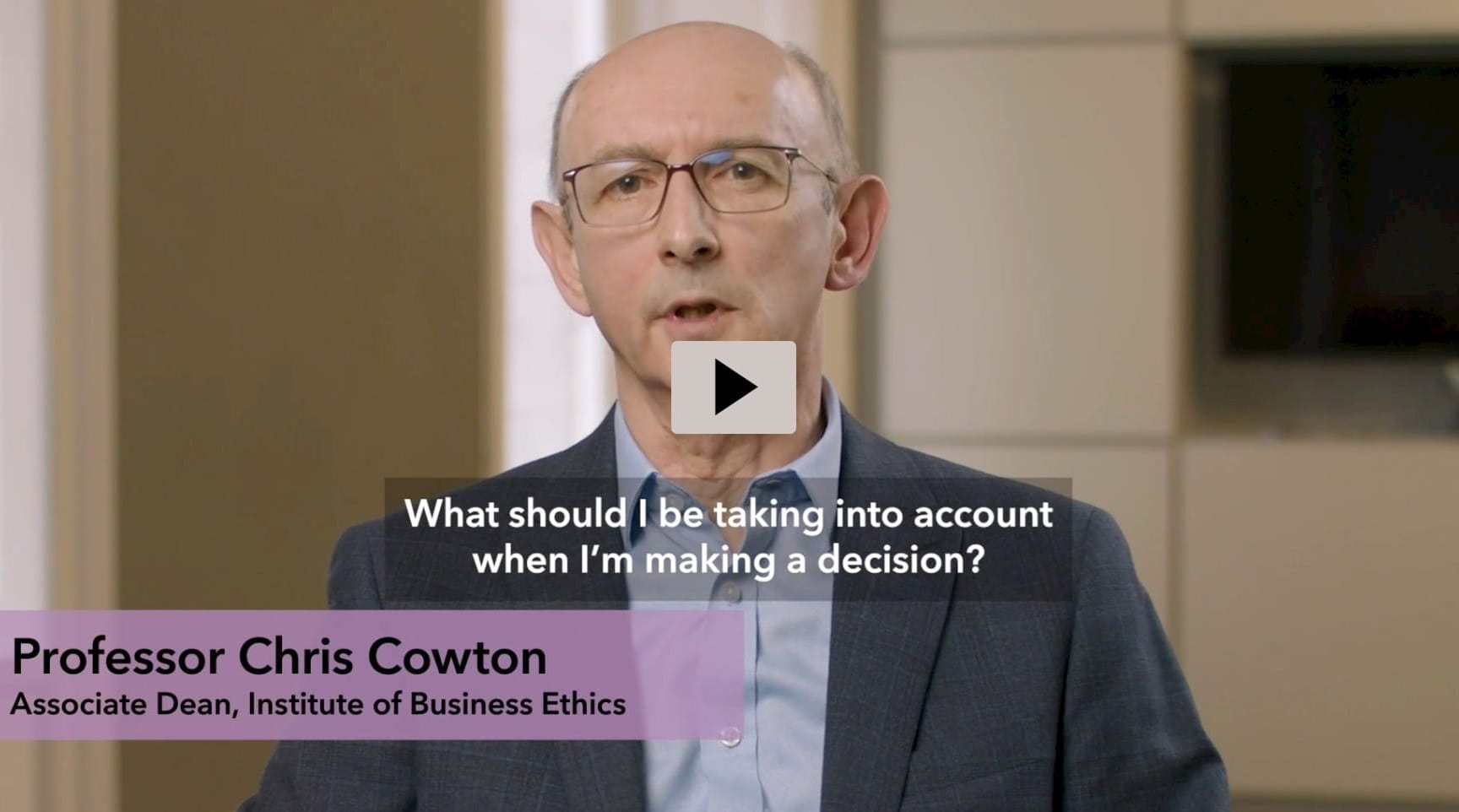What does an ethical leader look like? For Professor Chris Cowton, Associate at the Institute of Business Ethics, an ethical leader is not someone who just acts in accordance with values when it suits them. Instead, they actually embody values.
“When the rubber hits the road and there are tough choices to make, taking a more ethical path as an expression of values requires courage,” he says. “And that’s certainly a quality you will find in an ethical leader.”
Exactly which values ethical leaders should embody and how they should convey them to their colleagues are questions in themselves, Cowton notes. “An ethical leader would already have thought a great deal about their own values,” he says. “And as someone at, or near, the top of an organisation, they would likely have gone through an exercise of thinking about what ‘our’ values should be as a workforce. But that’s not sufficient if it isn’t followed through, or supported by other measures.”
Cowton served as the architect and main writer of the Ethics CPD Course that ICAEW launched last year. In light of that work, it is natural that he regards ethics not as an add-on, but something that organisations should view as a skill set, or core competence. “It’s all about actual behaviours,” he says. “Not just vague intentions.”
Gaining traction
As leaders are under intense scrutiny and their words carry weight, Cowton says that tone from the top on ethics is vital. However, he stresses that treating the subject in isolation is not merely unproductive, but self-defeating.
“Don’t just talk about ethics when you talk about ethics,” he says. “Yes, you may have a code of conduct that all the leaders and managers have signed up to – so there are written words to describe the organisation’s ethical position. But if you never mention ethics in a strategy talk, or when you’re updating the troops on how the year’s going, you don’t look serious. If all you do is confine ethics to special committees, the topic does end up feeling like an add-on. So, always set ethics in the context of everything else you’re doing.”
Alongside tone from the top, Cowton says, ethical leaders must also learn to harness the power of an often-overlooked asset: tone through the middle. A long-acknowledged pain point of organisational life, Cowton warns, is that middle-management can kill any strategic direction or change programme. As such, ethical leaders must bring middle managers on side to turn the written words of their code into a fully fledged culture.
“If the divisional directors of a firm are not on board, the danger is that the programme won’t gain the traction it deserves,” he says. “There are ways to address that, a very useful one of which is to actually get your middle managers involved with delivering the programme. From a training perspective, that could mean asking those managers to write a set of ethics-based scenarios to discuss with their staff.
“Now, some of them may be quite nervous about that. But engaging the training, ethics or compliance departments to support them would be a helpful, collaborative step.”
Star treatment
Leaders should find that managers at more junior levels are quite receptive to playing a role in building positive, ethical cultures, Cowton notes.
At one stage in his career, Cowton helped to organise a study of an early use in business ethics of so-called ‘virtue ethics’, which emphasise the importance of character. “It was fieldwork in a US company,” he explains. “When we got to the stage of asking employees who in their lives struck them as a real exemplar of ethical behaviour, it was extraordinary how many of them cited their first-ever line manager.”
Those findings served to highlight the importance of lower-level managers, who are often responsible for inducting new recruits.
Another crucial tool for shaping and steering an ethical culture, Cowton points out, is the appraisal system. “You’re told as employees that certain types of ethics are important,” he says. “But in terms of bonuses, who do you see getting star treatment? Is it somebody who you know achieved their glowing sales figures through some sort of dodgy practice? Or an individual who you know has bullied colleagues?”
Staff will also pay keen attention to how prospective partners or senior executives are identified, Cowton says. “Are you encouraging the right behaviours and discouraging the wrong ones? What’s the real message that’s coming through from methods of recognition and reward about what it means to be a ‘good’ employee?”
However, Cowton notes, quite a lot of managers are uncomfortable with putting ethics into appraisals. “Where they’re confident is in judging your financial performance. That’s relatively easy. But it’s more difficult on the ethics side. Getting a more rounded view of performance is something that many organisations are now trying to do. That may require a shift in attitudes and skills. But without it, it’s hard to develop and sustain the ethics-based culture that many leaders and their staff are looking for.”
Ethics CPD course
This free course helps you apply the Code of Ethics to everyday situations and satisfy your CPD requirements.



